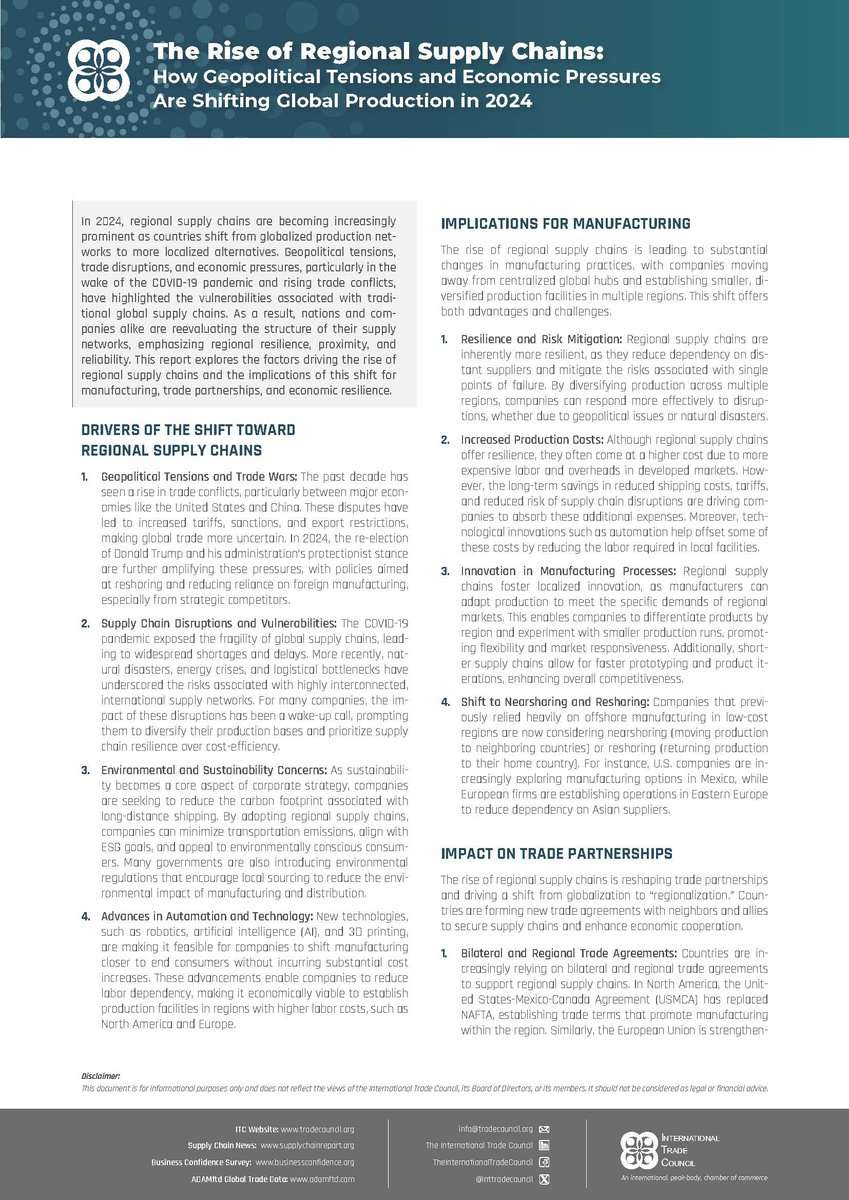About the Book
Published Date: November 2024
This white paper examines the growing trend of regional supply chains in response to geopolitical tensions, economic pressures, and the lingering impact of the COVID-19 pandemic. As globalized networks face increased risks from trade conflicts, tariffs, and natural disasters, companies and nations are turning toward localized alternatives that prioritize resilience and sustainability. Key drivers include technological advancements, environmental regulations, and the need for risk mitigation in critical industries like semiconductors and rare earth materials.
The report explores the implications for manufacturing, highlighting the benefits of nearshoring and reshoring, as well as challenges like higher production costs and complex compliance requirements. It also discusses how trade partnerships are evolving, with countries forming regional agreements and alliances to secure supply chains and reduce reliance on traditional hubs like China. Practical recommendations emphasize leveraging advanced technology, aligning with ESG goals, and investing in workforce training to maximize the benefits of regionalization. This analysis underscores the strategic importance of adapting to a more regionalized supply chain landscape to ensure economic and operational stability.

